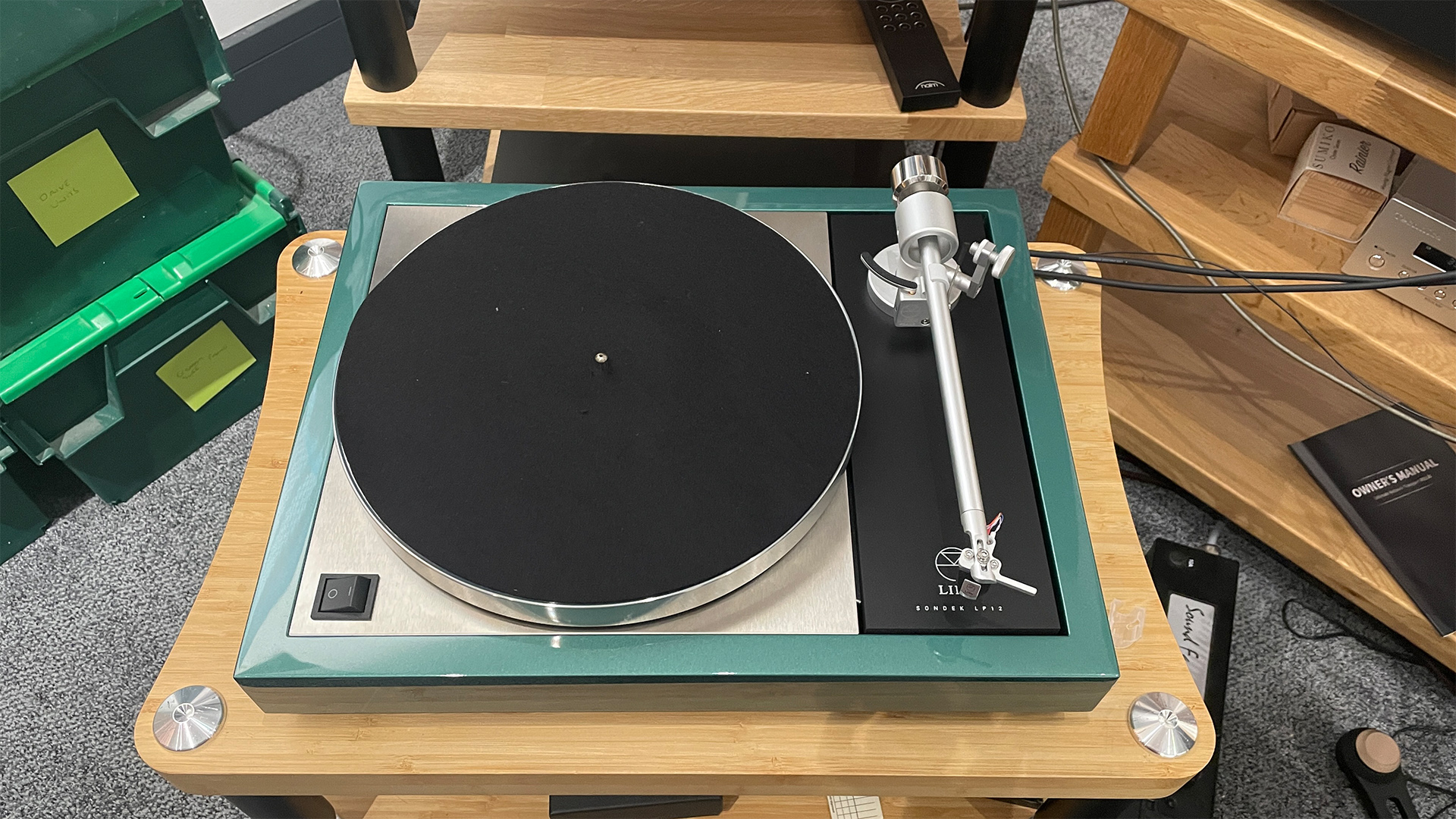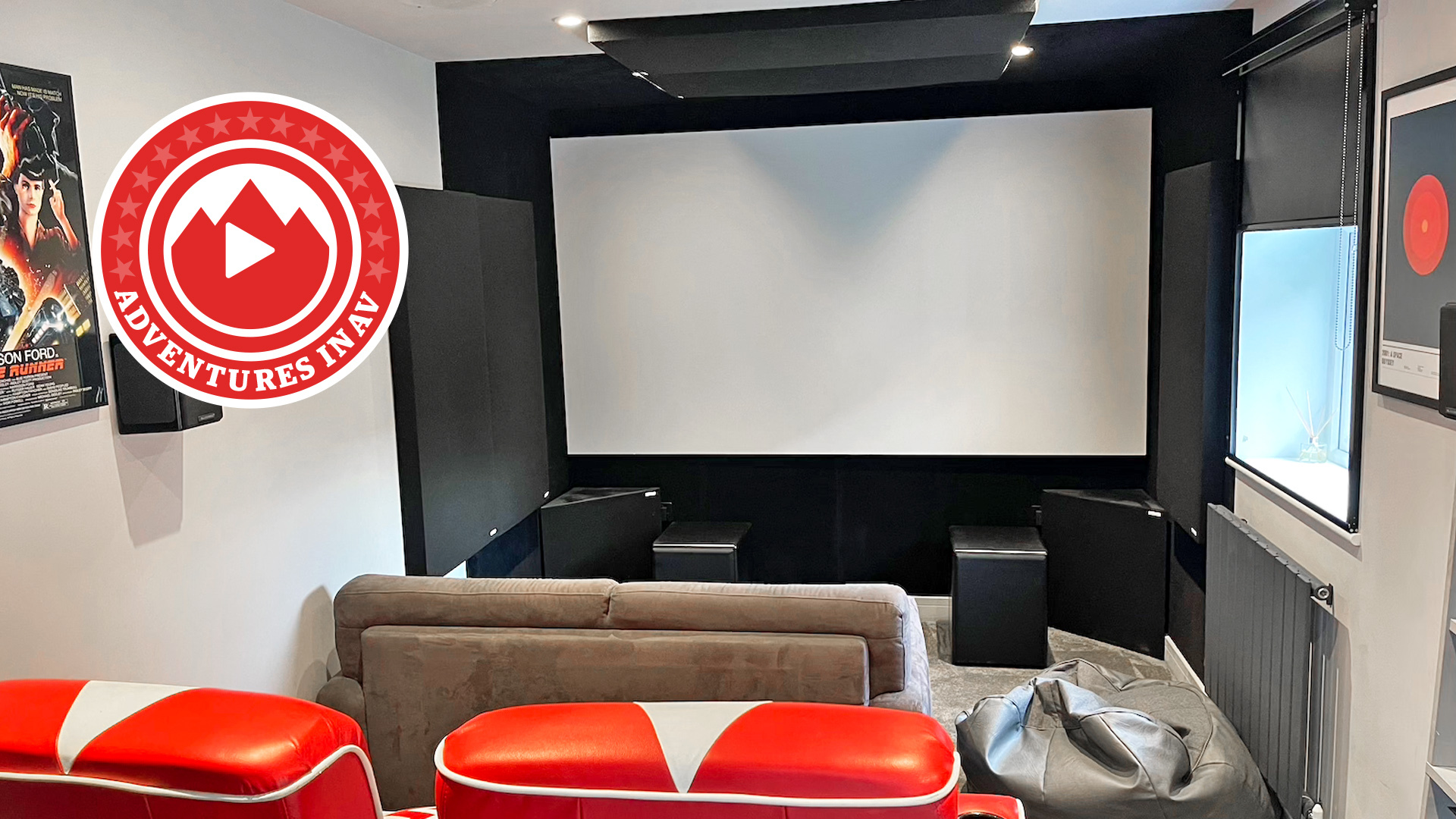What Hi-Fi? Verdict
The Majik LP12 MC is a fine introduction to Linn’s legendary turntable, though we think the real sweet spot lies further up the range
Pros
- +
A musical and engaging performance
- +
Fluidity and cohesive nature
- +
Plenty of upgrade potential
- +
Good build
- +
Wide choice of finish options
Cons
- -
Listening to 45 RPM records requires an adaptor
- -
Presentation lacks the rhythmic drive and dynamic punch of the class leaders
Why you can trust What Hi-Fi?
Linn’s LP12 is the stuff of hi-fi legend. Officially launched in 1973, it wasn’t the first belt-driven suspended sub-chassis turntable on the market. But, the combination of great sound, quality build, strong marketing and enthusiastic dealer network soon established it as a dominant force in the high-end record player market, particularly in the UK.
While the current LP12 looks much like the original, just about every part has been refined repeatedly over the years to keep the deck competitive with newer rivals. We have the entry-level Linn Majik LP12 MC record player on test here. It is one of the pre-packaged combinations the company offers to make things easier for potential customers. However, it is possible to construct your perfect version of this deck by picking from the extensive and rather pricey options list. We tested the range-topping, best-of-everything Klimax LP12 a few years back and it sounded spectacular, but it also currently costs around six times as much as this starter combination.
Design & build
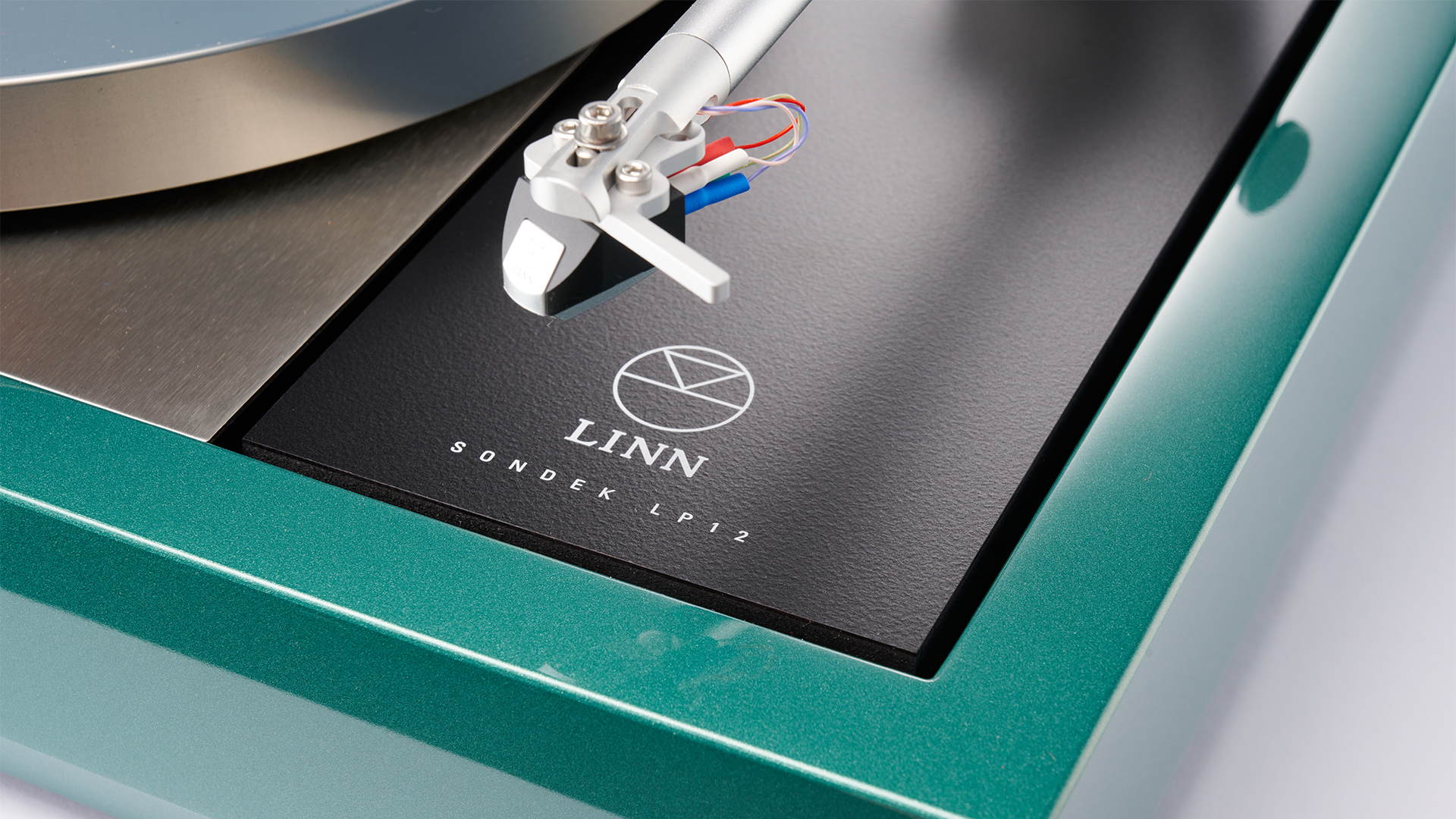
This Majik package includes the base LP12 turntable, Krane tonearm and the new Koil moving coil, though it is possible to swap the cartridge for the Adikt moving magnet and drop the price a little (£3700 / $5130 / AU$6995). The base LP12 uses essentially the same plinth, platter and main bearing as the models further up the range, but features more basic versions of the power supply, sub-chassis and baseboard.
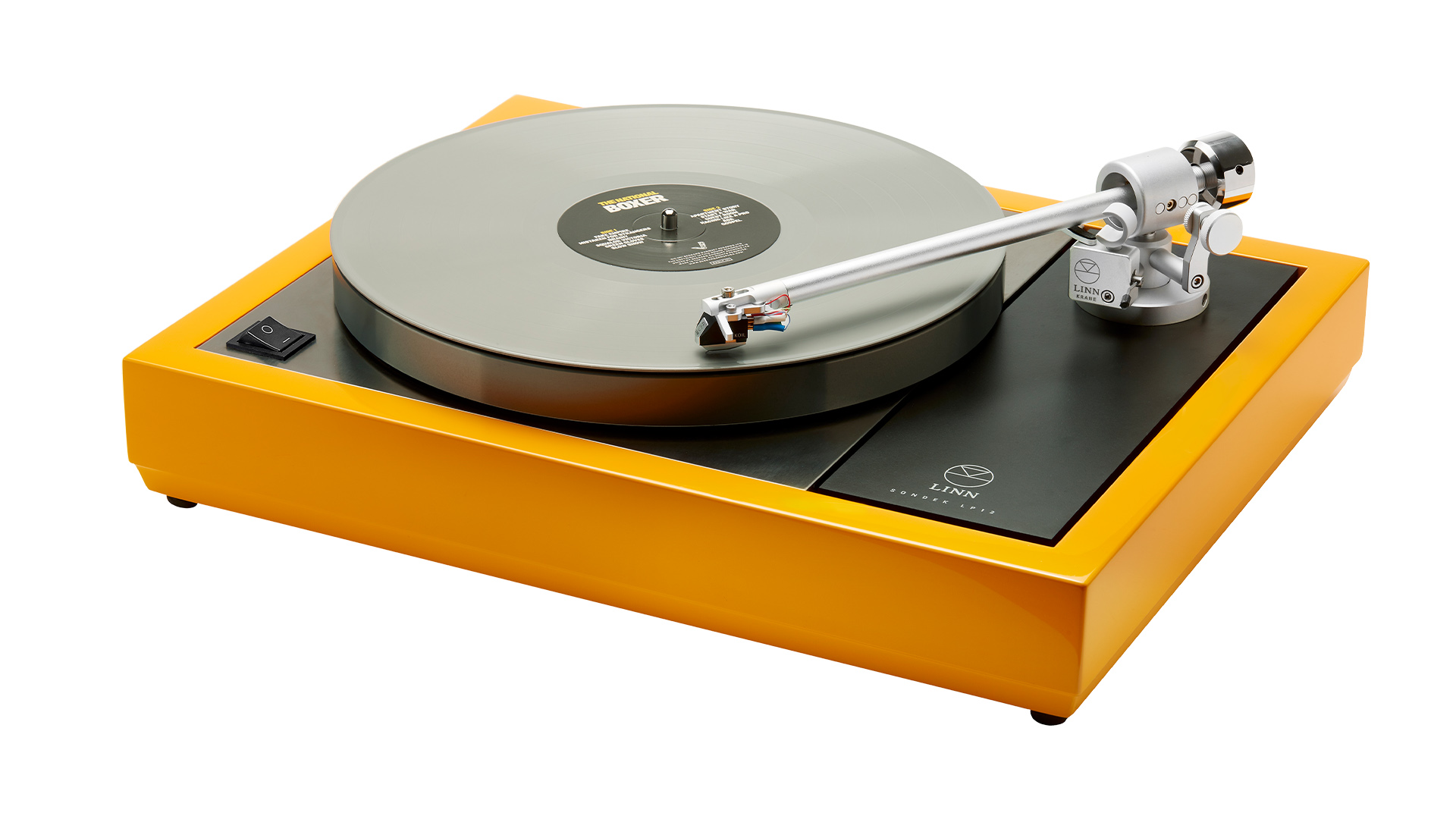
Type Belt drive
Operation Manual
Speeds 33⅓, 45rpm
Speed change Manual
Cartridge Linn Koil moving coil
Phono stage? No
Bluetooth? No
USB? No
Dimensions (hwd) 14 x 44.5 x 35.6cm
Weight 10 kg
Finishes x5 (oak, cherry, black ash, walnut, rosenut)
From a practical point of view, the simpler power supply means that speed change can no longer be done at the push of a button. The large rocker switch on the top panel only starts and stops the deck. If you want to play 45rpm records you will have to remove the platter (carefully) and fit an adapter over the motor spindle. It is even recommended that you have a second belt so that the original isn’t stretched over time. While the process isn’t hard, it is a bit of a faff. Entry-level or not, the speed change should be electronic at this level. That apart, the LP12 remains what it has always been, a relatively compact but well-made product that inspires confidence in use. It feels properly polished in a way that only products carefully honed over decades tend to.
The deck is available in five standard finishes (oak, cherry, black ash, walnut and rosenut), or for a small price premium you can have the plinth painted in pretty much any colour you like. Our review sample is painted in a green ‘Volkswagon’ colour, and pretty smart it looks too.
Setting up
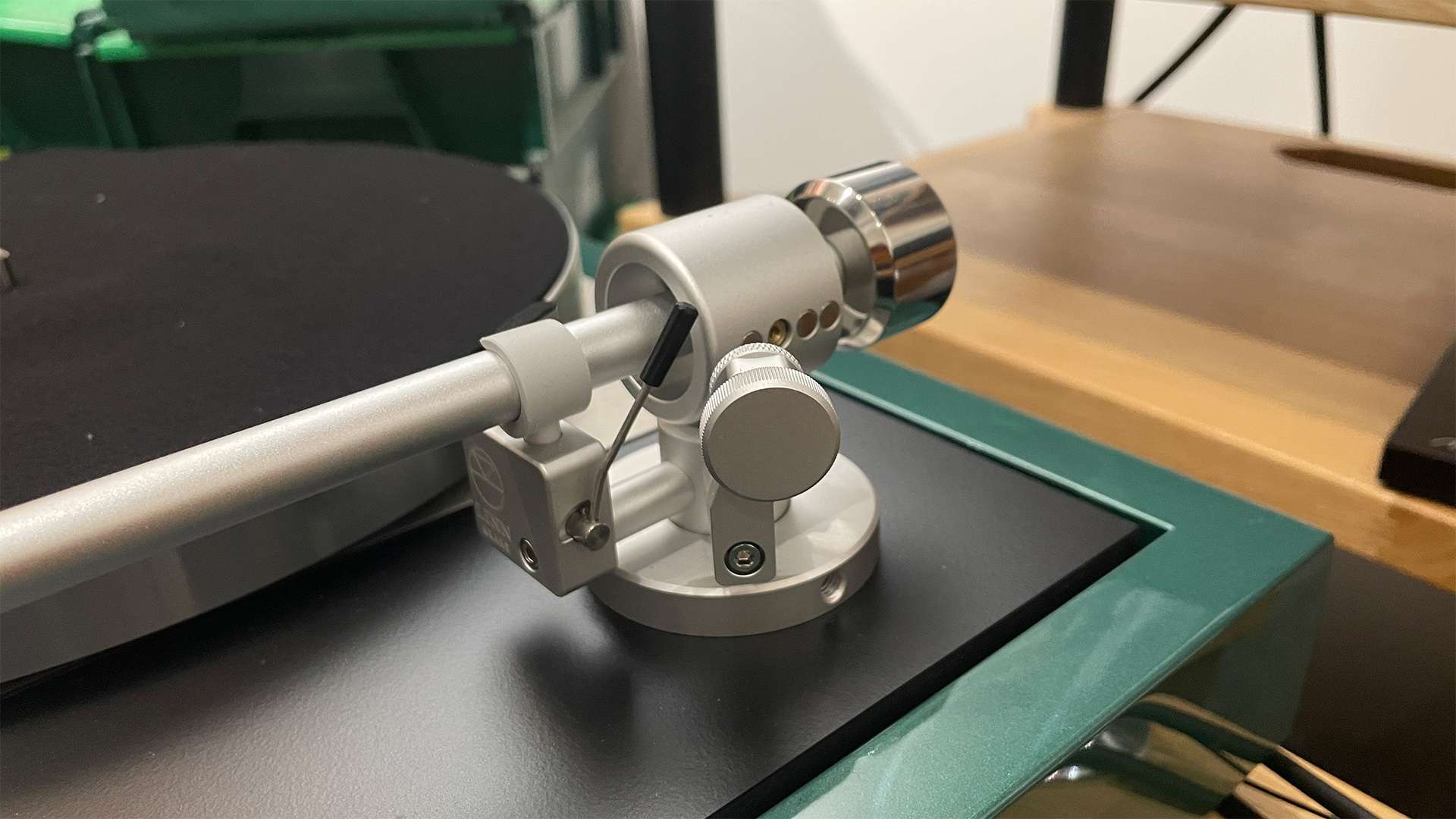
The selling dealer has a huge part to play in the ultimate performance of the LP12 deck. Linn’s agreement with its dealers means that they assemble the deck before it gets to the customer. It is a time-consuming process that requires patience and skill to perfect. While not impossible for an enthusiastic amateur to do, you need the right tools and experience to set the deck up properly. If that’s not done it will never sound optimal. What we are really saying is that if you are interested in buying an LP12, do it from a dealer you trust.
The Krane tonearm is available with the Majik LP12 or separately for £1445 / $1790 / AU$2695. It feels slick in use with smooth movement and the minimum of play in its bearings. Adjustments, including arm height, are easy to make while the magnetic bias system is an unusual touch. The Koil moving coil cartridge (£880 / $1060 / AU$1695) is a fairly conventional design with a low-mass boron cantilever and a Nude Microlinear stylus. It has an output of 0.4mV, which should be fine for most partnering phono stages, and tracks securely at the recommended 2.0g tracking weight.
The latest hi-fi, home cinema and tech news, reviews, buying advice and deals, direct to your inbox.
On the whole, the Majik LP12 MC is an easy deck to use, provided that you are not disturbed by the wobble of the sub-chassis when cueing the arm. This movement is well-damped, and calms quickly, but may disturb people more used to solid designs such as the Rega Planar 10 or the Vertere Acoustics DG-1 S. The advantage of Linn’s system is greater isolation from external disturbances, of course. Regardless, every turntable will still benefit from being placed on a low resonance support that is placed well away from the speakers.
We plumb the Majik LP12 MC into our reference system of Burmester 088/911 MkIII amplifier (with moving coil module fitted) and ATC SCM50 speakers. We also try it in a more price-compatible system of Vertere Phono-1 MkII L phono stage, Naim SuperNait 3 integrated and Epos ES14N speakers. Our main comparisons are the aforementioned award-winning Vertere DG-1 S/Magneto record player and our reference Technics SL-1000R.
Sound
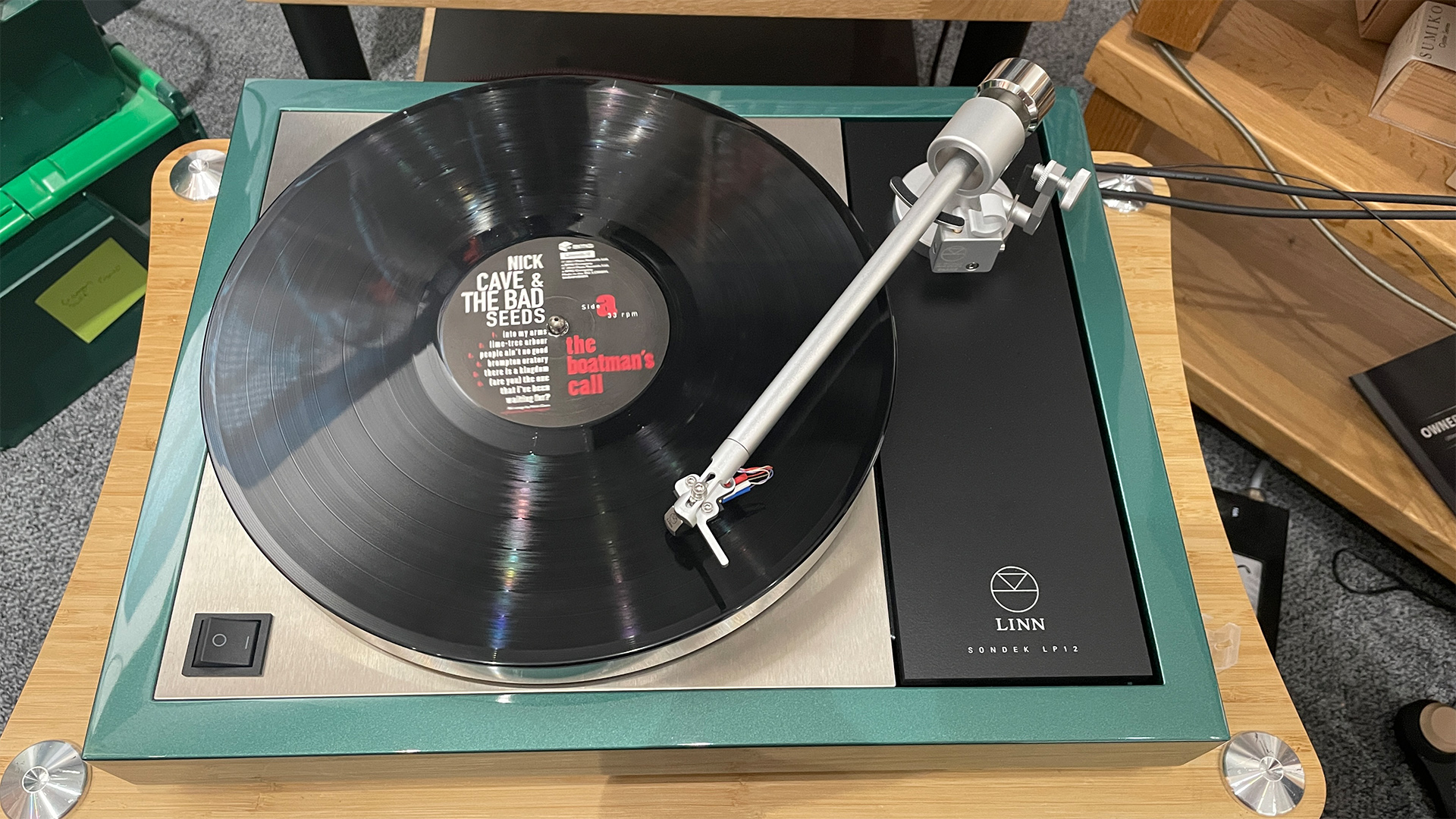
Given that the Majik is merely the first step of the ladder, it comes as no surprise to find that it doesn’t deliver the last word in LP12 performance. Let’s get the negatives out of the way first. This isn’t the most dynamic or rhythmically driven performer you will find for the money. The similarly-priced Vertere DG-1 S does notably better in both regards, even when partnered with the company’s budget Magneto moving magnet cartridge. Rega’s pricier Planar 10 is notably more insightful and better at reproducing subtleties such as instrumental textures and vocal nuances. Yet, we still find ourselves having fun when listening to the Linn.
It has a notably more laid-back attitude than the energetic Vertere, but still has a sound that holds our attention. Its presentation is fluid and wonderfully cohesive. We find ourselves focussing more on the music than analysing the recording, and that is never a bad thing. Sure, Michael Jackson’s Smooth Criminal could have been rendered with more excitement and better-defined bass, but the Linn flows along nicely, still capturing the energy and excitement in the music well. Jackson’s voice is easy to follow and packed with emotion, while the dense instrumental backdrop is organised with composure. Dynamic extremes are a little rounded, without the punch or rhythmic stability of the Vertere, but entry-level LP12 turntable remains talented enough to keep a firm hold of our attention.
The story remains music the same when we switch to Orff’s Carmina Burana. We are having fun and actively encouraged to take a holistic view of the music rather than focus on the details. This is the LP12 quality that sparks an almost obsessive allegiance among its fans, and we can understand why. The deck sounds involving and exciting without throwing the music at the listener.
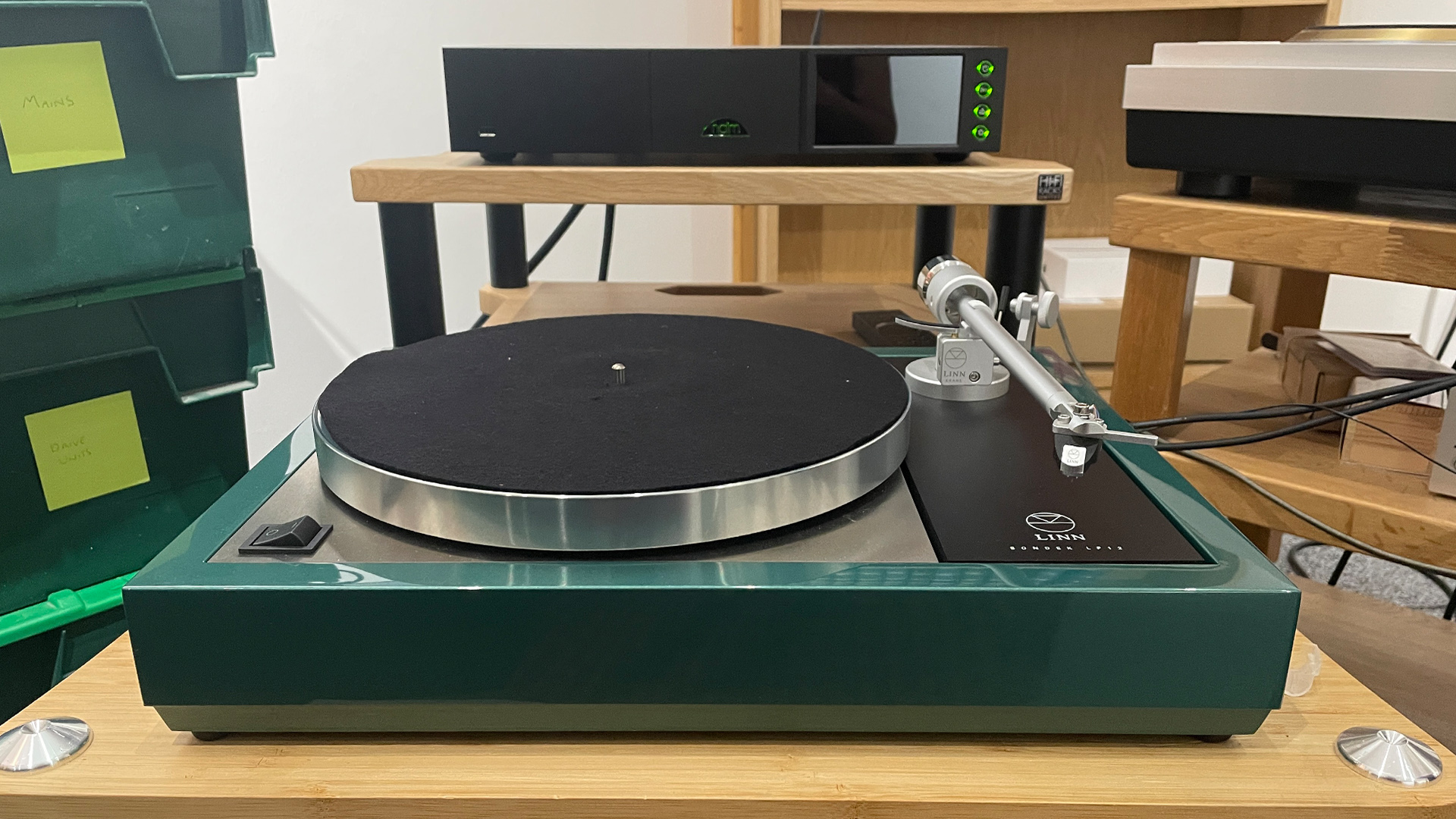
Stereo imaging is decently expansive, without setting new class standards and the tonality is generally nicely balanced. While it is easy to point to areas where the class leaders move ahead it is equally easy to accept exactly what the Majik LP12 does and move to the next record. The way this deck renders music isn’t necessarily wholly accurate but its version of the record remains compelling.
Spend the extra for a Lingo power supply (£1765 / $2200 / AU$3395), the superior Kore sub-chassis (£976 / $1395 / AU$1895) and upgrade Arko arm (£3000 / $3900 / AU$5995) and we think that gets up into peak price/performance territory for the LP12. Unfortunately, then the price increases to a point where it gets close to the next LP12 package, the Selekt. Seems like the Linn marketing department knows exactly what it is doing.
Verdict
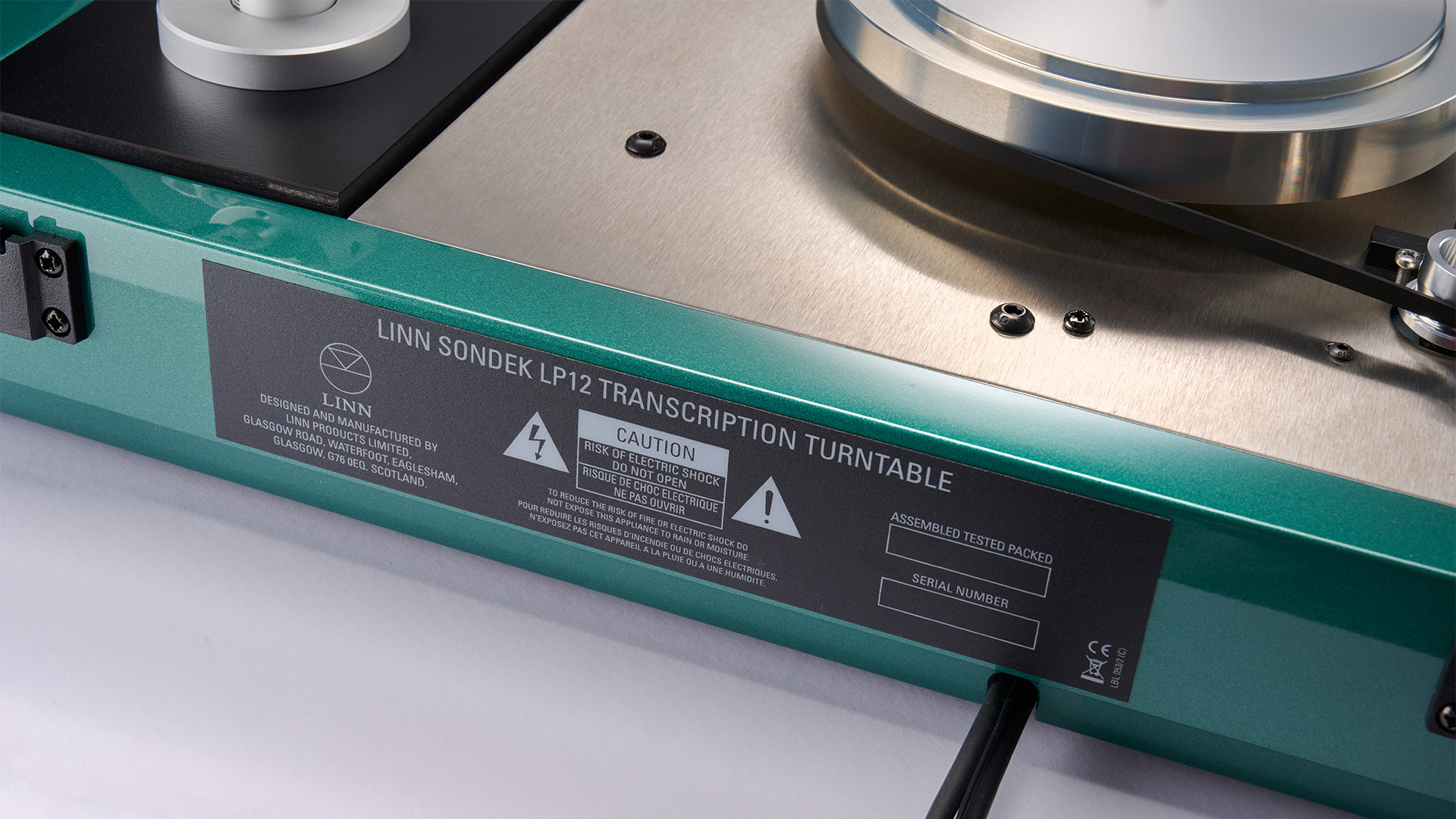
Having heard various versions of the LP12 turntable over the years it is fair to say that the Majik isn’t the sweet spot of the range. While its relatively modest spec means it can’t fully exploit the full potential of the LP12 design, it does at least give a decent taste of what makes the deck so special. That alone makes it worth serious investigation.
SCORES
- Sound 4
- Build 5
- Features 3
MORE:
Read our review of the Vertere DG-1 S/Magneto
Also consider the Rega Planar 10
Best high-end record players: ultimate premium turntables tested by experts
What Hi-Fi?, founded in 1976, is the world's leading independent guide to buying and owning hi-fi and home entertainment products. Our comprehensive tests help you buy the very best for your money, with our advice sections giving you step-by-step information on how to get even more from your music and movies. Everything is tested by our dedicated team of in-house reviewers in our custom-built test rooms in London, Reading and Bath. Our coveted five-star rating and Awards are recognised all over the world as the ultimate seal of approval, so you can buy with absolute confidence.
